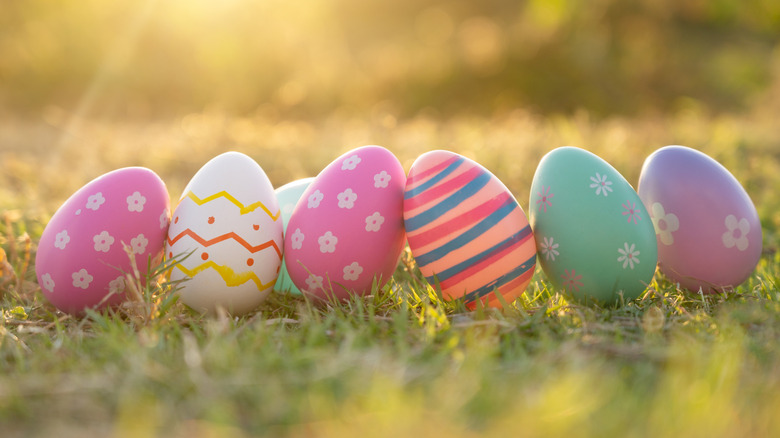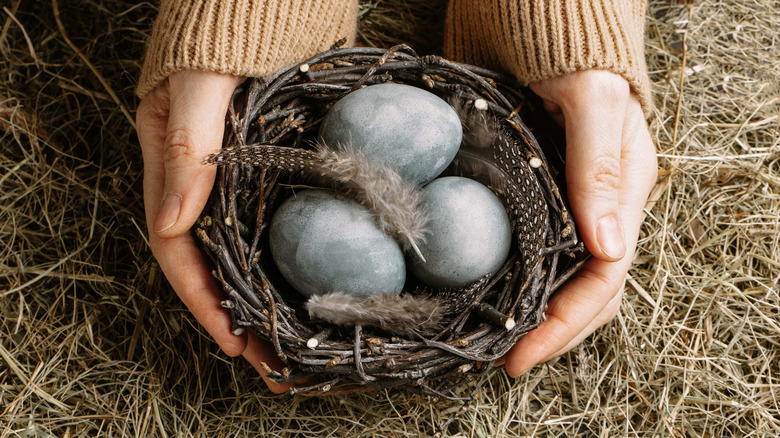The Symbolic Reasons Eggs Became An Important Part Of Easter
Many modern holiday traditions have very old origins. The practice of leaving cookies out for Santa has medieval roots, for instance. In the springtime, the globally observed holiday of Easter has many traditions attached to it — some more ancient than you might think. One overarching symbol that has become synonymous with Easter is the egg, and the origins of this tradition go back a long way.
Easter is a Christian holiday, and eggs have come to symbolize the resurrection of Jesus. Just as new life emerges from an egg in the form of a baby chick, Christians consider Christ's emergence from the tomb to represent new life for all humanity. Early Christians are said to have begun dying eggs red to symbolize Christ's blood (a forerunner to Easter egg decorating traditions that take place today). Activities like Easter egg rolling — an annual egg roll for children that is traditionally held at the White House, for example — are thought to symbolize the stone being rolled away from Jesus' tomb.
Going back as far as the fifth century, eggs were a food item prohibited during Lent, so Christians would boil the eggs their chickens laid during that time to preserve them until Lent concluded. The eggs would then be eaten in celebration of Easter, and they were additionally given to poor households who couldn't afford to eat meat as part of their holiday meals. Today, some popular things to do with boiled Easter eggs include transforming them into deviled eggs or using them in potato salad.
Non-Christian egg symbolism
More general, nonreligious symbolism at Easter time positions eggs as representative of springtime, fertility, and the renewal of life on earth. The symbolic association between eggs and springtime is also steeped in ancient pagan traditions. Rather than Christ's resurrection, pagan religions have honored the renewal of the earth and nature's elements in springtime.
Some hold that the name Easter is actually derived from a pagan festival dedicated to a goddess called Eastre (also known as Eostre, Ostara, and other alternative spellings). Eggs were consumed at the festival, with some depictions stating that eggs were also buried in the earth to promote fertility. Historians say early missionaries promoted scheduling Christian observances at the same time as these pagan events, as well as adopting some of the symbols used in the festivals, to aid in converting pagans to Christianity.
Eggs are also an important component of the Jewish Passover, called Pesach, which takes place in the spring. A hard-boiled egg appears on the Seder plate as part of the Passover meal and is dipped in salt water before being eaten. This egg similarly symbolizes the potential start of new life, as well as representing the Jews' liberation from slavery.


